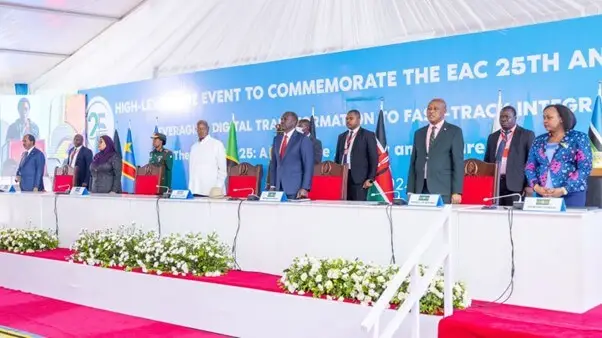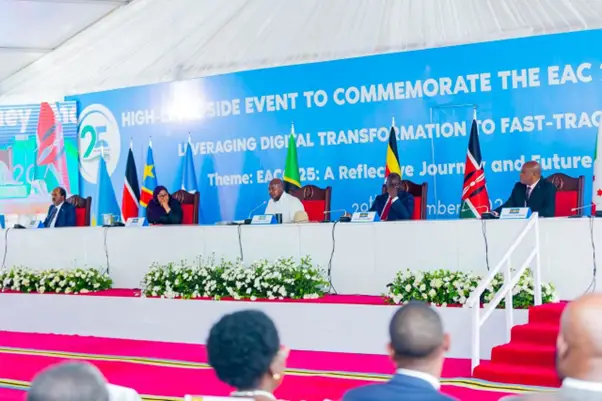The recent commemoration of the 25th Anniversary of the East African Community (EAC) offered an excellent opportunity to reflect on its achievements, confront persistent challenges, and outline the path forward for advancing regional integration. A notable focus of the celebration was the role of digital innovation in addressing cross-border payment inefficiencies, with technologies such as artificial intelligence, mobile money, and digital currencies emerging as critical enablers.
Coinciding with this milestone, the Africa Trade Development Forum (ATDF) was held in Kigali, Rwanda, from 2 to 3 December 2024. Co- organised by the Government of Rwanda and TradeMark Africa (TMA), the forum brought global trade leaders, policy makers, private sector representatives, researchers, and innovators to reimagine the transformative potential of digital solutions in redefining trade.
Both events emphasised the need for actionable strategies to strengthen intra-regional trade through enhanced collaboration. Regional cooperation emerged as a key driver of economic growth, with the EAC commended for its leadership in promoting intra-African trade.
Since 2010, TMA has worked to reduce trade barriers and modernise trade systems within the EAC. Its collaboration with the EAC has delivered 15 One-Stop Border Posts (OSBPs), reducing transit times by 16.5% along the Northern Corridor from Mombasa to Bujumbura and cutting crossing times by up to 70% at key border points. These improvements have significantly enhanced regional connectivity and efficiency.
Digital transformation has been central to TMA’s approach, with initiatives such as the Single Customs Territory introducing electronic cargo tracking system, digital certificates of origin, and customs modernisation. The EAC Customs Bond has replaced national guarantees, reduced transit costs and benefiting landlocked countries. Additionally, TMA’s support for small-scale traders has resulted in a revised Simplified Trade Regime, creating more opportunities for cross-border commerce. Efforts to tackle non-tariff barriers (NTBs) have achieved notable success, with reported cases dropping from 34 in 2017 to just one in 2024, aided by the launch of the NTBs App in 2023.

Despite these advances, significant challenges remain. Ms Annette Mutaawe Ssemuwemba, EAC Deputy Secretary General for Customs, Trade, and Monetary Affairs, highlighted bottlenecks such as uncoordinated trade regulations, fragmented payment systems, resource duplication, and slow decision-making processes. However, she emphasised ongoing progress towards harmonised regulations, interoperable payment systems, and automated trade processes that enhance transparency and efficiency. “Digital corridors and re-engineered business processes hold the potential to streamline trade further and achieve seamless regional integration,” she noted.
The EAC has grown from five member states in 2010 to eight in 2024, and TMA has continued to adapt its programmes, supporting new members and aligning initiatives with regional and continental frameworks. According to the TMA Director for Trade and Customs, Mr. Benedict Musengele, an improved trade environment across borders is instrumental in achieving TMA’s overarching objectives of sustainable and inclusive trade.
Mr. Musengele noted: “. Moving forward, TMA interventions will centre on harmonising EAC goals with the African Continental Free Trade Area (AfCFTA) and leveraging technologies such as AI, mobile money, and digital currencies to deepen economic integration. Combining trade in goods, investment and trade in services facilitation, is key in enhancing productive capacities and unlocking existing trade potential within and across African regional economic communities”
The dual celebration of the EAC’s anniversary and the ATDF 2024 reinforced the critical role of regional collaboration and digital innovation in reshaping trade. With sustained focus on harmonisation and scalability, East Africa is poised to drive economic integration and shared prosperity across the continent.


